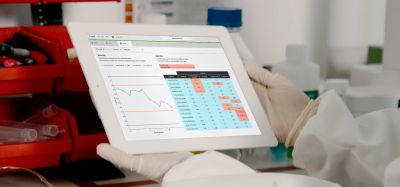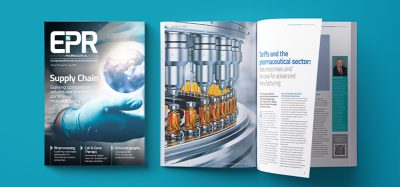COVID-19 vaccine rollout: a logistics success story
Posted: 23 April 2021 | Zoe McLernon (Logistics UK) | No comments yet
The dedication of the science community and healthcare workers in the fight against COVID-19 has been unwavering and justly praised. Yet logistics workers and the industries that support it have also achieved tremendous feats to support the resulting aid. Here, Zoe McLernon, Multimodal Policy Manager at Logistics UK, highlights the efforts involved in coordinating the vaccine rollout.


THE SUPPLY CHAIN continuity provided by the air cargo industry has been one of the most important assets in the world’s fight against the COVID-19 pandemic. At first, the sector stepped up to deliver many of the medicines, personal protective equipment (PPE) and other vital products the nation desperately needed; and now, one year on, air freight operators have been instrumental in enabling the administration of 425,019,505 doses of coronavirus vaccines across the globe.
Nearly 40 percent of the UK population has now received a COVID-19 vaccine, testament to the incredible collaborative work of many industries – including, of course, the input of the logistics sector. In this article, I will look back at the vast obstacles our industry had to overcome to reach this point – covering the requirements for security, storage, personnel and capacity – and the challenges that lie ahead as the vaccine rollout programme continues around the globe.
The challenges faced
In addition to the huge volumes of product involved – the equivalent of 8,000 Boeing 747s are needed to ship the requisite number of vaccines around the world for every person to be vaccinated – there are numerous considerations that are unique to these specific products; the individuals involved in their distribution needed to understand the complexities of transporting each different type of vaccine and cater accordingly. The Oxford-AstraZeneca vaccine must be stored at ‘fridge temperature’ (2-8°C), whereas the Pfizer vaccine must be stored at around -70°C for it to be effective – making it far more challenging to transport. In response, Pfizer worked with Softbox, a specialist packaging manufacturer, to develop a temperature-controlled, reusable parcel shipper specifically for ultra-low temperature shipments.
Businesses had to move quickly to train staff in the complex security, handling and monitoring requirements involved and ensure shipment security was watertight”
The vaccines must be stored effectively in temperature-controlled facilities when not in transit – facilities which needed to be constructed to cope with both the huge volumes and unique storage requirements. UPS is one of the companies that rose to the challenge, constructing two ‘freezer farms’ in the Netherlands and the USA, which store a total of 600 deep-freezers, each capable of holding 48,000 vials of vaccine at temperatures as low as -80°C.
Some individual vaccine shipments are valued as high as $70 million, according to Bloomberg sources, with the Transported Asset Protection Association – an industry group representing companies that carry precious goods – describing vaccine distribution as “the biggest security challenge in a generation.” In December 2020, INTERPOL issued a global alert to law enforcement across its 194 member countries warning them to prepare for organised crime networks targeting COVID-19 vaccines, both physically and online, with a warning that groups are planning to infiltrate or disrupt supply chains.
Businesses had to move quickly to train staff in the complex security, handling and monitoring requirements involved and ensure shipment security was watertight, with all systems able to cope with the requirements of transporting such a high volume of valuable commodities. Security systems are only as strong as their weakest link, so all those within the supply chain – from manufacturers to scientists, nurses to drivers – needed to prepare accordingly. For example, many HGV drivers undertook specialist training on how to handle an attack on vaccine cargo, with trucks having specialist alterations and some shipments even requiring armed guards.
The challenges going forward
The restrictions placed on passenger travel following the COVID-19 outbreak – coupled with the economic downturn – have posed a constant challenge to the ability of the air cargo industry to operate effectively and will continue to do so until passenger flight levels return to something approaching normality. Overall capacity for air cargo has now shrunk by 25 percent compared to 2019 levels. While we have seen an increase in cargo-only movements since March 2020, it is worth noting that pre-pandemic, belly hold cargo (goods transported via passenger aircraft) at Heathrow Airport accounted for more than 60 percent of total UK air freight volume. This figure has shrunk in line with the reduction in air passenger volume and subsequent loss in available capacity.
Until passenger flight levels resume, an expansion in available slots for dedicated freight flights would help to bridge the trade gap. In the meantime, priority must be given to vaccine shipments, with ample slot flexibility and fleet availability. In the UK, any border arrangements with EU neighbouring states must prioritise the movement of vaccines to prevent delays. Businesses operating in the logistics industry have the expertise and dedication required to transport the vaccines safely and swiftly, but they do need the right support from government and other stakeholders.
The distribution of the vaccines has been another success story for the logistics sector – an industry that has shown its resilience, agility and strength throughout the pandemic. Additionally, while political disagreements between the UK and EU on vaccine supplies continue, the logistics sector is always ready to adapt to maintain deliveries for the global population.
Logistics UK
Logistics UK is one of the UK’s leading business groups, representing logistics businesses that are vital to keeping the UK trading and more than seven million people directly employed in the making, selling and moving of goods. With COVID-19, Brexit, new technology and other disruptive forces driving change in the way that goods move across borders and through the supply chain, logistics has never been more important to UK plc. Logistics UK supports, shapes and stands up for safe and efficient logistics, and is the only business group which represents the whole industry, with members from the road, rail, sea and air industries, as well as the buyers of freight services, such as retailers and manufacturers whose businesses depend on the efficient movement of goods. For more information about the organisation and its work, including its ground-breaking research into the impacts of COVID-19 on the whole supply chain, please visit the Logistics UK website.
About the author
Zoe McLernon is the Multimodal Policy Manager at Logistics UK. Specialising in air, rail and maritime policy developments, her role includes speaking on behalf of Logistics UK’s multimodal members to stakeholders and government. In addition to her role at Logistics UK, she serves as the Councillor for Bicester South and is Chair of the Personnel Committee and Vice-Chair of the Environment Committee at Bicester Town Council.
Issue
Related topics
Biologics, Distribution & Logistics, Supply Chain, Vaccines, Viruses
Related organisations
AstraZeneca, Bloomberg, INTERPOL, Logistics UK, Pfizer, Softbox, Transported Asset Protection Association, University of Oxford, UPS









